Error message
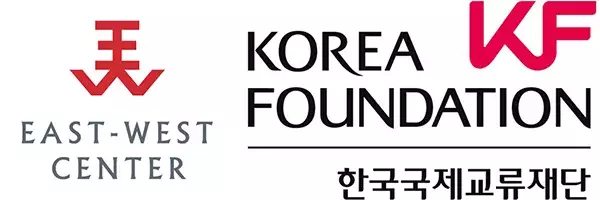
OFFICE/DEPARTMENT
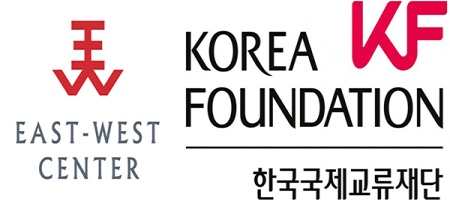
The East-West Center in Washington and the Korea Foundation invite you to the
United States-Republic of Korea Cooperation in Southeast Asia: Trade, Investment, and Multilateralism Webinar Series:
Creating Smarter & More Sustainable Cities in Southeast Asia:
A Roadmap for United States-South Korea Cooperation
Featuring:
Ms. Sea Young (Sarah) Kim
East-West Center-Korea Foundation Visiting Scholar &
PhD Student, International Cooperation, Yonsei University
Ms. Helen Santiago Fink
Program Manager, US-ASEAN Smart Cities Partnership (USASCP)
US Department of State (EAP/MLA), Cherokee Nation 3S
Dr. Satu P. Limaye (Moderator)
Vice President, East-West Center &
Director, East-West Center in Washington
East-West Center in Washington · Creating Smarter & More Sustainable Cities in Southeast Asia: A Roadmap for US - S Korea Cooperation
Smart cities are considered important platforms for combatting urban-based climate change problems and promoting sustainable development. In addition to providing digitalized solutions for managing transportation, waste, and energy issues, smart cities encourage cooperation and collaboration among public and private actors due to their relative novelty. Smart city development in Southeast Asia is an area in which both United States and South Korea could contribute through coordinated cooperation. With an interested business community and increasing technological capabilities, both Washington and Seoul each have its own comparative advantages in furthering smart cities in Southeast Asia. This presentation provided an assessment of ongoing smart city projects in ASEAN and highlights specific recommendations for the US and South Korean governments in aiding sustainable development in Southeast Asia. Ms. Kim's PowerPoint presentation is available for viewing.
Ms. Kim also wrote for the East-West Center in Washington's Asia Pacific Bulletin series on this topic.
The United States-Republic of Korea (ROK) Cooperation in Southeast Asia: Trade, Investment, and Multilateralism webinar series and online, collaborative policy research program is a collaboration between the East-West Center in Washington and the Korea Foundation, which generously sponsors the program. Under this program, three experts, one each from South Korea, Southeast Asia, and the United States, assess how their respective countries are collaborating to bolster US - ROK cooperation in Southeast Asia in the areas of trade, investment, and supporting multilateral efforts in the region.
SPEAKER BIOGRAPHIES
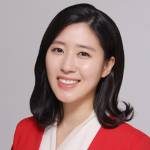
Sea Young (Sarah) Kim is an East-West Center-Korea Foundation Visiting Scholar for the United States-South Korea Cooperation in Southeast Asia program, and a PhD student in international cooperation at Yonsei University. She previously served as research associate and program manager at the East Asia Institute in Seoul, where she was responsible for research on East Asian politics and public opinion. She has experience working at the Center for Strategic and International Studies Korea Chair and the National Assembly of the Republic of Korea. She also studied diplomatic and economic policies as a Korea Foundation fellow with Pacific Forum. She holds an MA in Asian studies from the Edmund A. Walsh School of Foreign Service at Georgetown University and BA in international studies from Ewha Womans University.
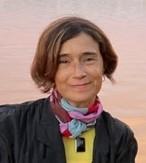
Helen Santiago Fink is currently the Program Manager of the US-ASEAN Smart Cities Partnership (USASCP) and manages the programmatic, technical and financial aspects of the $10+million, 20+ project initiative to address urbanization challenges in Southeast Asia. Helen works at the intersection of the social, natural, and physical sciences. Her 25+ years of professional experience bring multi-disciplinary expertise in sustainable development, climate change mitigation/adaptation and resilience, urban (systems) planning, energy-efficient buildings, community and economic development. Helen has worked at the global, national, and local scale as technical advisor and program manager for organizations, including the United States Agency for International Development (USAID), United Nations Environment Programme (UNEP), World Bank, European Commission, Federal Emergency Management Agency (FEMA), and the Organization for Security and Cooperation in Europe (OSCE). Helen’s publications highlight how nature-based solutions can accelerate urban sustainability and climate resilience, https://www.urbanbreezes.com/helen-santiago-fink/. She holds a BA in Economics, MA in Urban and Regional Planning and undertook doctoral work in eco-cities and climate change at the BOKU/Natural Resources and Life Sciences University in Vienna Austria.
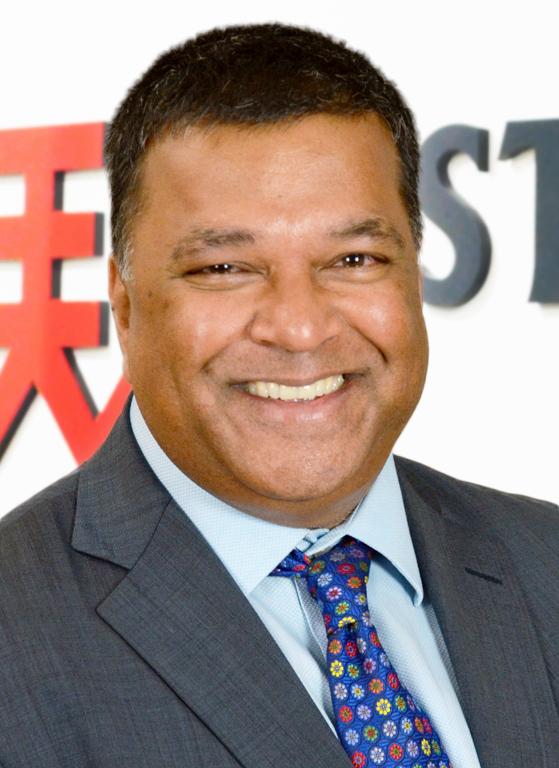
Satu P. Limaye is Vice President of the East-West Center and the Director of the East-West Center in Washington where he created and now directs the Asia Matters for America initiative and is the founding editor of the Asia Pacific Bulletin. He is also a Senior Advisor at CNA Corp (Center for Naval Analyses) and Senior Fellow on Asia History and Policy at the Foreign Policy Institute at Paul H. Nitze School of International Studies (SAIS). He is magna cum laude and Phi Beta Kappa graduate of Georgetown University and received his doctorate from Oxford University (Magdalen College) where he was a George C. Marshall Scholar. Recent publications include: “America’s ‘Pacific Principle’ in an Indivisible Pacific Islands Region,” (Asia Pacific Bulletin); “Despite Stumbles, America’s Engagement with Southeast Runs Deep,” (Global Asia); Raging Waters: China, India, Bangladesh, and Brahmaputra Water Politics (Marine Corps University Press); and Russia’s Peripheral Relevance to US-Indo Pacific Relations (Center for the National Interest).

The East-West Center in Washington and the Korea Foundation invite you to the
United States-Republic of Korea Cooperation in Southeast Asia: Trade, Investment, and Multilateralism Webinar Series:
Creating Smarter & More Sustainable Cities in Southeast Asia:
A Roadmap for United States-South Korea Cooperation
Featuring:
Ms. Sea Young (Sarah) Kim
East-West Center-Korea Foundation Visiting Scholar &
PhD Student, International Cooperation, Yonsei University
Ms. Helen Santiago Fink
Program Manager, US-ASEAN Smart Cities Partnership (USASCP)
US Department of State (EAP/MLA), Cherokee Nation 3S
Dr. Satu P. Limaye (Moderator)
Vice President, East-West Center &
Director, East-West Center in Washington
East-West Center in Washington · Creating Smarter & More Sustainable Cities in Southeast Asia: A Roadmap for US - S Korea Cooperation
Smart cities are considered important platforms for combatting urban-based climate change problems and promoting sustainable development. In addition to providing digitalized solutions for managing transportation, waste, and energy issues, smart cities encourage cooperation and collaboration among public and private actors due to their relative novelty. Smart city development in Southeast Asia is an area in which both United States and South Korea could contribute through coordinated cooperation. With an interested business community and increasing technological capabilities, both Washington and Seoul each have its own comparative advantages in furthering smart cities in Southeast Asia. This presentation provided an assessment of ongoing smart city projects in ASEAN and highlights specific recommendations for the US and South Korean governments in aiding sustainable development in Southeast Asia. Ms. Kim's PowerPoint presentation is available for viewing.
Ms. Kim also wrote for the East-West Center in Washington's Asia Pacific Bulletin series on this topic.
The United States-Republic of Korea (ROK) Cooperation in Southeast Asia: Trade, Investment, and Multilateralism webinar series and online, collaborative policy research program is a collaboration between the East-West Center in Washington and the Korea Foundation, which generously sponsors the program. Under this program, three experts, one each from South Korea, Southeast Asia, and the United States, assess how their respective countries are collaborating to bolster US - ROK cooperation in Southeast Asia in the areas of trade, investment, and supporting multilateral efforts in the region.
SPEAKER BIOGRAPHIES

Sea Young (Sarah) Kim is an East-West Center-Korea Foundation Visiting Scholar for the United States-South Korea Cooperation in Southeast Asia program, and a PhD student in international cooperation at Yonsei University. She previously served as research associate and program manager at the East Asia Institute in Seoul, where she was responsible for research on East Asian politics and public opinion. She has experience working at the Center for Strategic and International Studies Korea Chair and the National Assembly of the Republic of Korea. She also studied diplomatic and economic policies as a Korea Foundation fellow with Pacific Forum. She holds an MA in Asian studies from the Edmund A. Walsh School of Foreign Service at Georgetown University and BA in international studies from Ewha Womans University.

Helen Santiago Fink is currently the Program Manager of the US-ASEAN Smart Cities Partnership (USASCP) and manages the programmatic, technical and financial aspects of the $10+million, 20+ project initiative to address urbanization challenges in Southeast Asia. Helen works at the intersection of the social, natural, and physical sciences. Her 25+ years of professional experience bring multi-disciplinary expertise in sustainable development, climate change mitigation/adaptation and resilience, urban (systems) planning, energy-efficient buildings, community and economic development. Helen has worked at the global, national, and local scale as technical advisor and program manager for organizations, including the United States Agency for International Development (USAID), United Nations Environment Programme (UNEP), World Bank, European Commission, Federal Emergency Management Agency (FEMA), and the Organization for Security and Cooperation in Europe (OSCE). Helen’s publications highlight how nature-based solutions can accelerate urban sustainability and climate resilience, https://www.urbanbreezes.com/helen-santiago-fink/. She holds a BA in Economics, MA in Urban and Regional Planning and undertook doctoral work in eco-cities and climate change at the BOKU/Natural Resources and Life Sciences University in Vienna Austria.

Satu P. Limaye is Vice President of the East-West Center and the Director of the East-West Center in Washington where he created and now directs the Asia Matters for America initiative and is the founding editor of the Asia Pacific Bulletin. He is also a Senior Advisor at CNA Corp (Center for Naval Analyses) and Senior Fellow on Asia History and Policy at the Foreign Policy Institute at Paul H. Nitze School of International Studies (SAIS). He is magna cum laude and Phi Beta Kappa graduate of Georgetown University and received his doctorate from Oxford University (Magdalen College) where he was a George C. Marshall Scholar. Recent publications include: “America’s ‘Pacific Principle’ in an Indivisible Pacific Islands Region,” (Asia Pacific Bulletin); “Despite Stumbles, America’s Engagement with Southeast Runs Deep,” (Global Asia); Raging Waters: China, India, Bangladesh, and Brahmaputra Water Politics (Marine Corps University Press); and Russia’s Peripheral Relevance to US-Indo Pacific Relations (Center for the National Interest).








